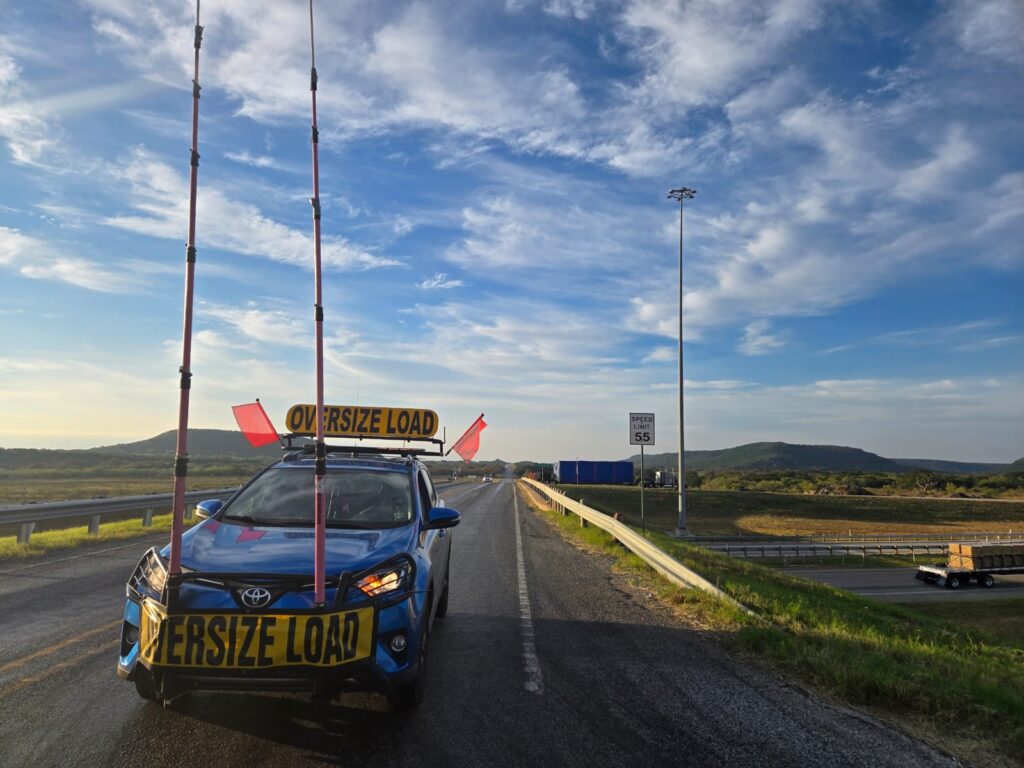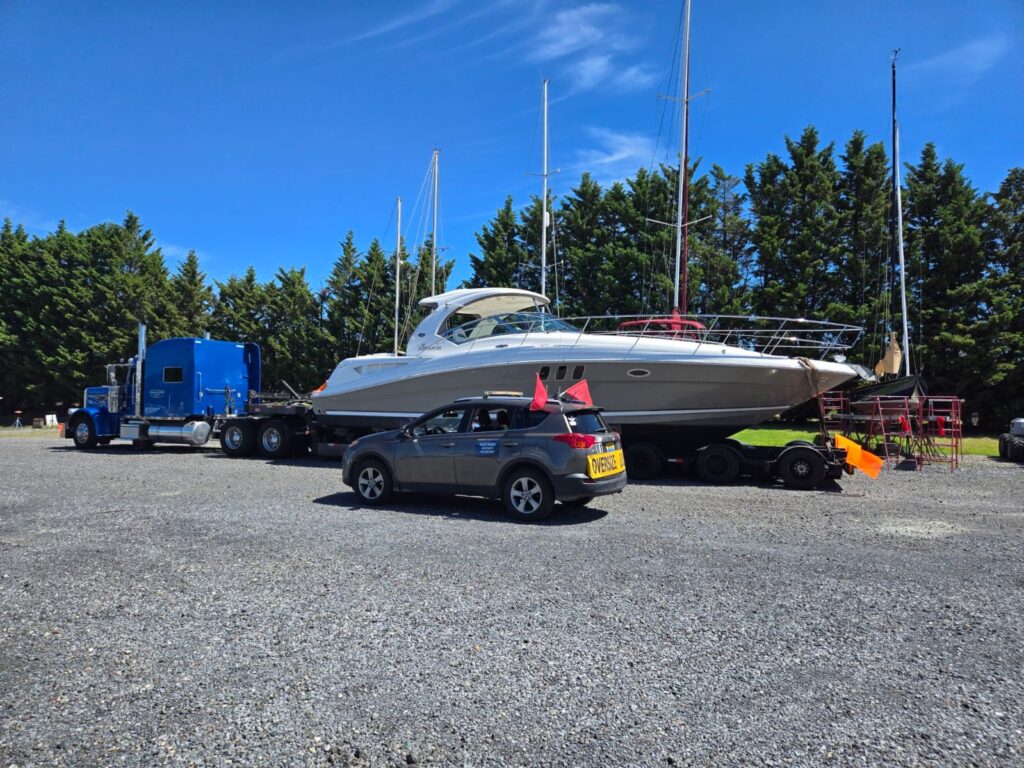1. Ensuring Road Safety
Oversized loads can be unwieldy, posing risks to drivers, cargo, and surrounding traffic. Pilot cars act as a safety buffer, guiding these loads through busy highways or narrow roads. By scouting ahead and warning of obstacles, they help prevent accidents—keeping everyone on the road out of harm’s way.
2. Managing Traffic Flow
Wide or heavy vehicles can disrupt normal traffic patterns, leading to congestion or confusion. Pilot cars take charge by coordinating with truck drivers and signaling other motorists. Their presence ensures smoother traffic flow, reducing the chaos that oversized loads might otherwise cause.
3. Protecting Infrastructure
Bridges, tunnels, and power lines weren’t built with oversized loads in mind. A single miscalculation could damage critical infrastructure—or the load itself. Pilot car drivers assess routes in real-time, steering clear of low clearances or weak structures to avoid costly collisions.
4. Staying Legally Compliant
Transporting oversized loads isn’t just a logistical challenge—it’s a legal one. State and federal regulations often mandate pilot cars for certain dimensions or weights. These services ensure compliance with permits, signage, and escort requirements, sparing companies from fines or delays.
5. Mastering Route Planning & Navigation
The shortest route isn’t always the safest for an oversized load. Pilot car operators are experts in pre-planning and adapting routes, identifying hazards like sharp turns, weight-restricted bridges, or construction zones. Their navigation skills keep the journey smooth and on track.
6. Bridging Communication & Coordination
Pilot cars aren’t just guides—they’re communicators. Equipped with radios or other tools, they relay real-time updates between truck drivers and local authorities. This coordination is vital for managing road closures, police escorts, or unexpected changes.
7. Boosting Efficiency & Minimizing Delays
Unexpected roadblocks or detours can derail a delivery schedule. Pilot cars anticipate these issues, scouting ahead to find alternative paths or solutions. Their proactive approach keeps transport timelines intact, saving time and money.
8. Safeguarding Valuable Cargo
Oversized loads often carry expensive equipment—think wind turbine blades, industrial machinery, or modular homes. Pilot cars protect this investment by ensuring safe passage, reducing the risk of damage from accidents or misjudged routes.
9. Handling Emergencies
Breakdowns or road hazards are stressful enough without an oversized load in tow. Pilot car drivers are trained to respond quickly, whether it’s directing traffic around a stalled vehicle or calling for roadside assistance. Their preparedness keeps small problems from becoming big ones.
10. Raising Public Awareness
A massive load barreling down the highway can catch drivers off guard. Pilot cars alert the public with flags, lights, and signs like “Oversized Load Ahead.” This early warning system gives other motorists time to adjust, enhancing overall road safety.
Conclusion
Pilot car services are more than just an escort—they’re a lifeline for oversized load transport. From preventing accidents to protecting infrastructure and ensuring legal compliance, their role is multifaceted and irreplaceable. Next time you see a pilot car leading the way, you’ll know it’s not just about getting from point A to point B—it’s about doing it safely, efficiently, and responsibly.
Would you like me to dive deeper into any of these points or tweak the tone further?


